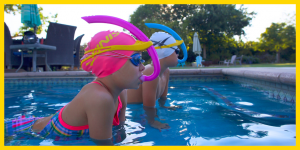Mentoring is an Important Tool for Coaches
Terry Heggy, U.S. Masters Swimming
September 18, 2018
Strengthen yourself and the sport of swimming through shared expertise
One of the best things about Masters Swimming is the support and inspiration we receive from the great folks we meet in the water and on the pool deck. Here are a few ways to leverage those connections to ensure our sport continues to grow and prosper.
Keep an Open Mind
One of the exciting things about swimming is how it constantly evolves. Innovations in training, form, gear, and mechanics are constantly developed, so we continually benefit from being open to new ideas. I keep a photo of my college-era “bellybuster” racing dive near my desk to remind me how much things have changed.
Somebody else knows something you don’t
Even when you spend your evenings watching slow-mo video of Olympians and reading the latest research papers, your colleagues are thinking up fun new sets and discovering new ways to empathize with their athletes. Develop relationships with other coaches, including age-group and college coaches. Talk about swimming and share ideas with as many of your peers as possible. You never know when someone will tell you something that will lead to a breakthrough with your team.
Here are a few suggestions for reaching out to other coaches.
- Treat your state’s Coach of the Year to pancakes and coffee in exchange for a few coaching tips.
Attend stroke development clinics where you can ask questions of elite instructors. - Take USMS coach certification classes.
Join your LMSC’s coaching committee. - Attend practices with other teams and identify what worked well for them.
- Seek a compatible and willing coach to be your designated mentor.
Sniff out staleness
Watch for indicators of your own complacency, which include the following.
- Can swimmers predict every one of your workout sets?
- Have athletes reached performance plateaus?
- Is team membership or meet participation dwindling?
If each practice seems like the same old stuff, then it might be time for an adjustment. Bring in a guest coach, try an online workout, or mix it up with a grab bag. Ask your swimmers for suggestions.
Produce Protégés
If you only coach individual athletes, there’s an upper limit to how many swimmers you can help. But if you train other coaches, too, your influence expands exponentially.
Become a mentor
Think beyond merely grooming your own assistant coaches or eventual replacement. Think of yourself as a swimming evangelist who constantly inspires others to join our profession. When you share your coaching wisdom and experience, you enable the expansion of the sport by providing other qualified coaches who could start new teams, train other coaches, and bring the joy of swimming to many more people.
- Identify qualified candidates—Look for enthusiastic individuals who exhibit passion and leadership, readily grasp technical concepts, care about their teammates, and communicate well. Masters experience is not required to be a good coach, but it does help with understanding the perspective of those in the water. Keep your eyes open for these qualities whenever you attend meets, triathlons, etc. Your mentees may come from other teams, other sports, or even through business networks.
- Emphasize empathy—Anyone considering coaching will naturally seek technical tips, but the most important duty of a mentor is to help newbies learn to personalize the coach/athlete interaction. No one cares how much you know until they know how much you care.
- Follow up—Regularly meet with your mentee to review progress, answer questions, and plan for future growth. Provide honest feedback, followed by additional opportunities to try new things. Discuss ways the new coach can help expand programs with new workout hours or venues, creating new teams, etc.
Mentor to the masses
Even if you mentor other coaches individually, consider sharing your experience with the coaching world at large. Network with your peers at the USMS National Coaches Clinic, submit articles for publication, and participate in online forums.
It’s true that training other coaches enhances your résumé and scores points toward your Level 4 coaching certification, but the best reward you can receive is when your mentoring generosity results in an extended network of coaching mentors that improves Masters Swimming for generations to come.
Recent Articles
Dylan Carter
Chelsea Hodges
Lorenzo Zazzeri

Introducing the Stability Snorkel Jr
Share on Social Media


